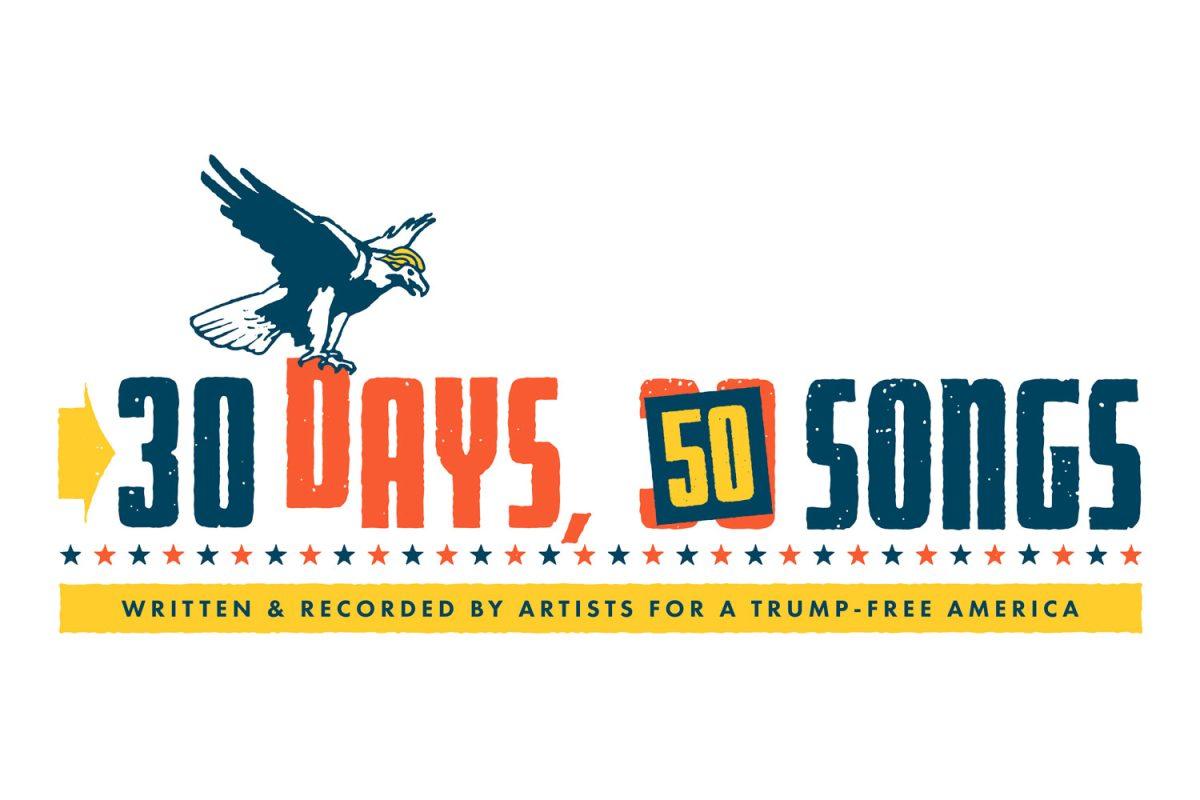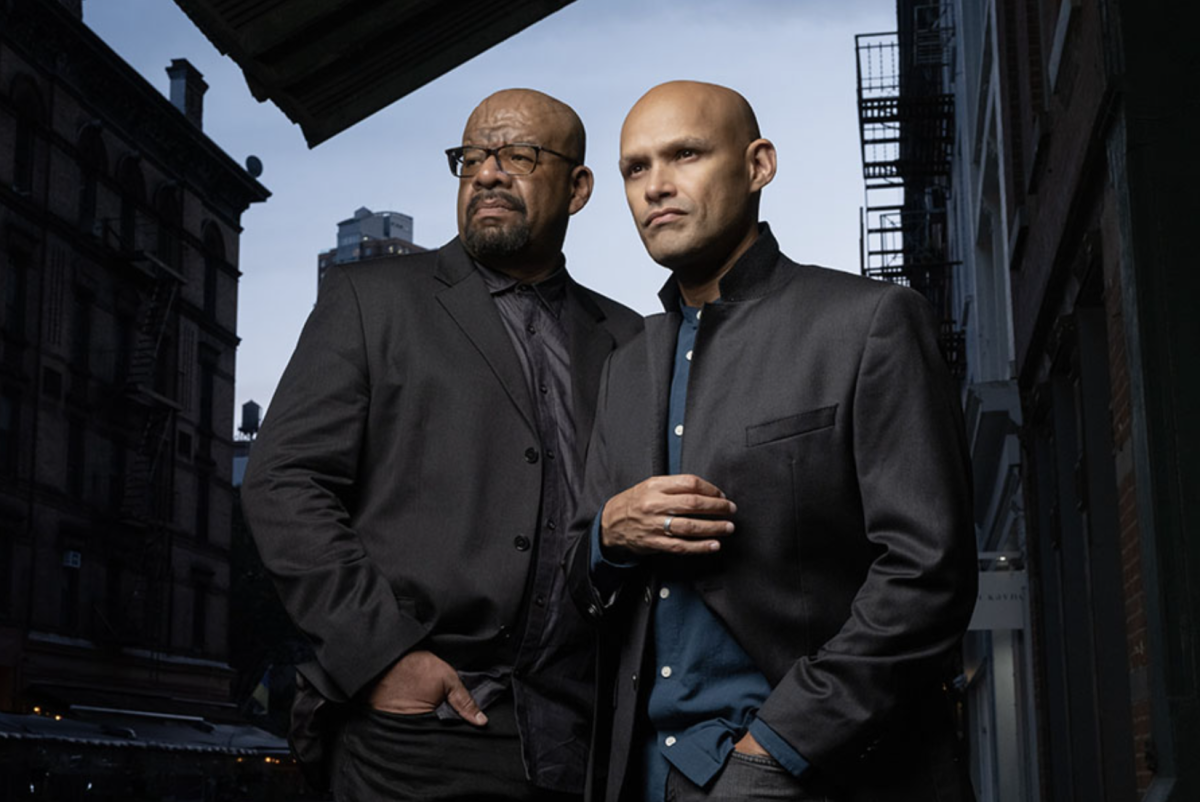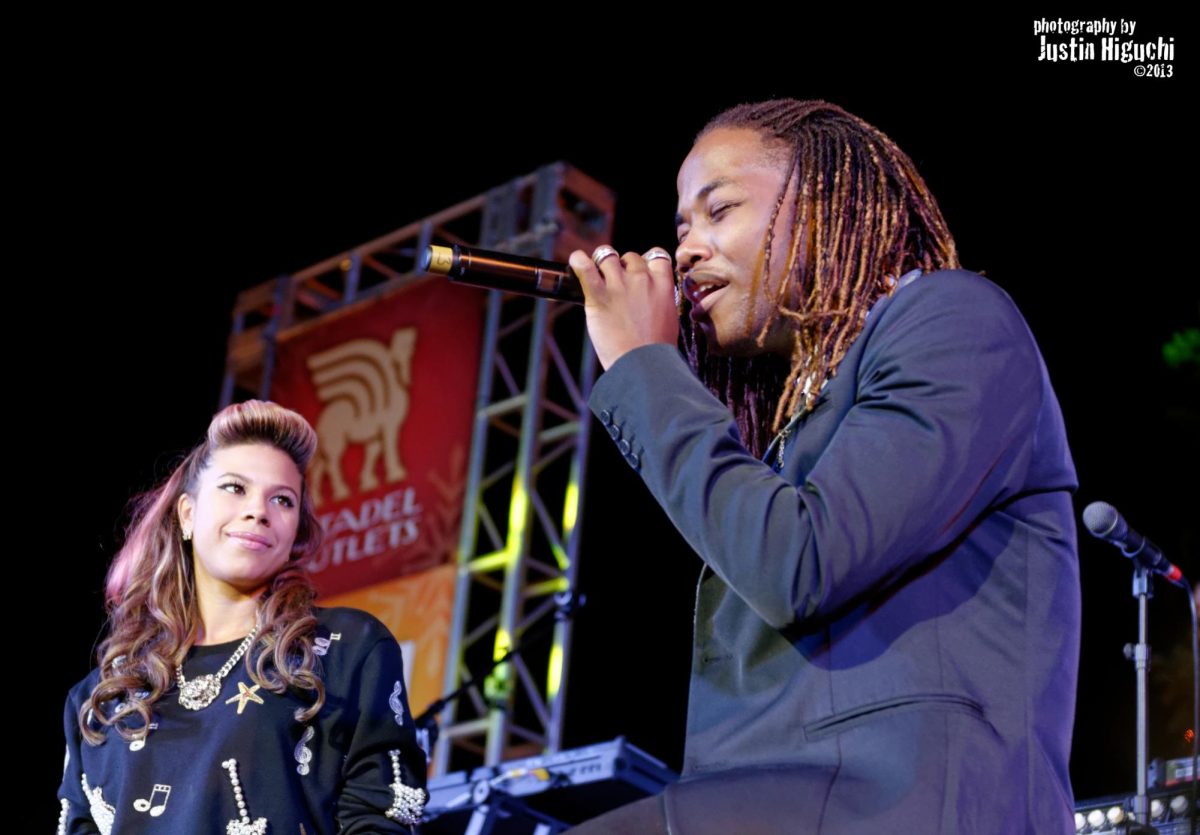Despite the fact that both presidential candidates are reticent about their stance on the arts in their campaigns, a collective of artists have made very clear their feelings about this year’s candidates. Launched on Oct. 10, the website “30 Days, 30 Songs” has set out to release one song per day until Election Day, Nov. 8; however, “the ignorant, divisive, and hateful campaign of Donald Trump” inspired more artists than anticipated and listeners can enjoy up to 50 songs about the Republican nominee and his policies.
As of Nov. 6, 45 songs have been released. All of the songs give off a similar indie, alternative vibe and could easily find a place alongside mainstream radio tunes, but the veritable common thread linking these 45 songs together is Trump and his innumerable gaffes on the campaign trail, from the laughably asinine to the downright frightening.
Death Cab for Cutie kicked off the project with their song “Million Dollar Loan,” a not-so-subtle reference to Trump’s statements at a town hall event in Atkinson, New Hampshire on NBC’s “Today” about receiving “a small loan of a million dollars” from his father. The song is repetitive and relaxing, but includes lyrics as bitter as “call your father on the phone and get that million dollar loan” and “he counter sues from any corner he’s backed into.”
“Before the Wall” by Kyle Craft is a folksy plea for voters to think in the minds of the immigrants who would be affected by Trump’s policies. Reminiscent of Bob Dylan—Craft even says “I know it sounds like Bob Dylan, get over it”—the song uses acoustic guitar and imperfect vocals to inspire a vulnerability and desperation unlike any other in “30 Days, 30 Songs.”
Some songs are angrier than others (“Little Failure” by Moby and the Void Pacific Choir, “Same Old Lie” by Jim James), some are sillier (“DonaldTrumpMakesMeWannaSmokeCrack” by Ledinsky, “How to Be Super Petty to Your Ex” by Open Mike Eagle) and others are quite sad (“Backward Blues” by Adia Victoria, “Before the Wall” by Kyle Craft), but as the website proudly boasts, every “30 Days, 30 Songs” release definitely belongs in the project that the Washington Post described as “a playlist of songs that Donald Trump will hate.”
Curated by Dave Eggers and Jordan Kurland, the playlist is not the first political piece in the collaborators’ repertoire. During the 2012 presidential election, they launched the essay series “90 days, 90 reasons,” in which they gave 90 reasons why Obama should be re-elected as president over the last 90 days of the 2012 election.. The direness of the current state of American affairs is alarmingly evident in the fact that Eggers and Kurland have turned their noses from an encouraging platform to a platform built on tearing down the wall Trump wishes to build.
The website also includes notes to different factions of voters: “feminists who can’t get behind Hillary,” “supporters of Bernie Sanders,” “people who care about transparency in government,” and more. These notes offered a logical explanation to occasionally irrational demographics for a Clinton presidency. The project is overtly pro-Hillary, naming the Democratic nominee as “a calm, intelligent, empathetic professional with more relevant experience than any candidate in the modern era.”
Neither candidate expressly detailed a stance on the arts in their respective campaigns, but both have supported the fine arts throughout their careers. In 1999, for her support of the National Endowment of the Arts and the National Endowment for the Humanities, Clinton was awarded an Americans for the Arts National Arts Award for Arts Advocacy. Between 1994 and 2010, Trump donated approximately $465,125 to arts-affiliated organizations in New York. Despite his monetary support for the arts, the curators of the playlist stated on the website that they and other artists “will not be duped by Mr. Trump’s rhetorical contortions, by his pandering and lies and false promises.”
The election will be over by the time this is published, but the artists’ impulse to join together and make this playlist is indicative of a much larger issue within this election cycle. Some of the artists engaged in the same rhetoric that Trump has used in order to bite back at the threat to American democracy he poses. As vitriolic and hostile as it is set to music, the same rhetoric spewed on the campaign trail is unseemly, previously unseen and can only be described as overwhelmingly ‘Trump.’ But that’s the same old story I and others have been crowing these past few months, and since this is going to be the last time I will write to the intersection of the 2016 presidential election and the arts, I find myself saying, with nervous relief, “thank goodness.”





